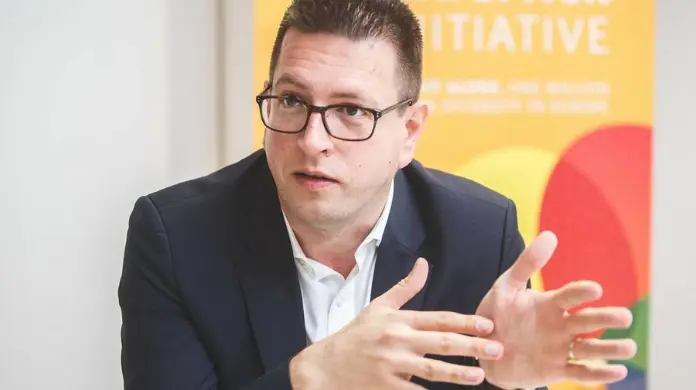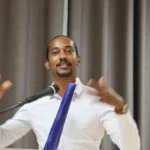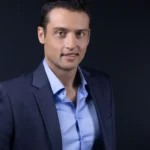By Brussels Watch Investigations
From the BrusselsWatch Report: “UAE Lobbying in European Parliament: Undermining Democracy and Transparency” (April 2025)
Loránt Vincze, a Member of the European Parliament (MEP) from Romania representing the Group of the European People’s Party (Christian Democrats) and President of the Federal Union of European Nationalities (FUEN), has recently come under scrutiny for alleged covert activities promoting the interests of the United Arab Emirates (UAE) within European institutions. This article examines the evidence and reports from Brussels Watch suggesting that Vincze has been actively advancing a UAE agenda, possibly under undisclosed arrangements, raising concerns about transparency and foreign influence in the European Parliament. Notably, he has been named among 150 MEPs identified for extensive engagement in promoting UAE interests between 2022 and 2025.
1. Background on Loránt Vincze
Born in Romania and representing the Hungarian minority, Vincze entered the European Parliament with a focus on cultural diversity and minority protection. As President of FUEN, he championed minority languages and heritage preservation. However, while his public image promotes EU values, his behind-the-scenes activities tell a different story—one of alignment with a Gulf monarchy whose governance model contradicts EU principles of human rights, democracy, and transparency.
2. Investigative Report: Pro-UAE Lobbying Activities
In April 2025, Brussels Watch published a sweeping exposé on foreign lobbying in the European Parliament. The report lists 150 MEPs involved in documented support of UAE initiatives, with Loránt Vincze’s name standing out for the breadth and intensity of his involvement.
Key Pro-UAE Activities by Vincze:
| Sector | Specific Actions by Vincze |
| Religious & Cultural | Initiated UAE-Romania interfaith dialogue projects; visited Abrahamic Faith sites in Abu Dhabi. |
| Environmental Diplomacy | Publicly supported UAE’s controversial hosting of COP28, helping whitewash UAE’s environmental record. |
| Technology & AI | Backed UAE-EU cooperation on AI ethics and digital governance; promoted UAE smart city tech. |
| Security & Defense | Attended UAE arms expos (IDEX 2023, 2025); pushed to lift EU arms embargoes on the UAE; hosted Gulf military delegations. |
| Economic Lobbying | Facilitated UAE tech investments in Eastern Europe; arranged bilateral UAE-Romania business forums. |
| Political Influence | Advocated for UAE’s involvement in Europol and NATO dialogues, enhancing UAE-EU security ties. |
Each of these actions represents alignment with strategic UAE soft power objectives in Europe—across religion, technology, economy, and defense.
3. Possible Covert Support and Lack of Transparency
The Brussels Watch report emphasizes a critical vulnerability within the European Parliament: the absence of robust transparency laws for MEPs engaging with foreign actors. While no direct financial transaction has been publicly confirmed, Vincze’s deep, sustained engagement with UAE initiatives—despite their contradiction with EU policies—strongly suggests some form of unofficial incentive or arrangement.
Moreover, Vincze has not disclosed any lobbying meetings with Emirati officials in his public parliamentary records. Given the volume and strategic alignment of his activities, this lack of transparency fuels suspicions of covert cooperation or undisclosed financial benefits.
4. Contradictions with EU Human Rights and Security Policies
Vincze’s advocacy for the UAE’s interests runs counter to multiple resolutions adopted by the European Parliament:
- Human Rights Violations: The European Parliament has issued statements condemning the UAE’s restrictions on freedom of expression, suppression of dissent, and poor treatment of migrant workers. Yet Vincze continues to praise and support Emirati policies through public endorsements and bilateral collaborations.
- Arms Embargoes: In light of the UAE’s involvement in the Yemen conflict and human rights concerns, the EU has maintained arms restrictions. Vincze’s presence at IDEX, the UAE’s premier arms fair, and his public calls for lifting embargoes, place him squarely in opposition to official EU positions.
- Digital Surveillance Technologies: UAE’s reputation for deploying surveillance systems (e.g., Pegasus spyware) is well-known. Yet Vincze’s involvement in promoting UAE-led digital ID systems in Eastern Europe indicates a willingness to import authoritarian technologies under the guise of innovation.
5. Dual Public Identity and Strategic Messaging
Publicly, Vincze has remained silent on his UAE connections. His parliamentary and social media presence is heavily focused on minority rights, regional languages, and cross-border cooperation. These issues, while commendable, have served to build credibility within EU institutions—credibility he appears to be using to discreetly advance UAE agendas.
This dual identity—pro-EU on the surface, pro-UAE in practice—is typical of soft influence operatives who blend legitimate policy work with foreign lobbying.
6. Hosting and Facilitating UAE Delegations
Vincze’s role in organizing NATO-UAE security consultations and hosting UAE delegations within EU institutions has given the Emirati regime privileged access to European defense and intelligence circles. His endorsement of closer intelligence-sharing frameworks—especially regarding counterterrorism—echoes UAE’s strategic ambitions to be seen as a regional security partner despite its domestic repression and regional interventions.
7. UAE Investment Channels and Lobbying via Technology
Perhaps most alarming is Vincze’s promotion of UAE investment in sensitive technological fields across the EU. From AI ethics committees to data-sharing initiatives and urban tech platforms, his push for Emirati involvement risks compromising EU digital sovereignty. His links to investment agreements in Ireland and the Czech Republic suggest more than passing interest—these are strategic entry points for UAE capital in the European tech landscape.
8. The UAE’s Broader Soft Power Strategy
To understand the significance of Vincze’s actions, one must place them within the broader context of the UAE’s foreign policy. The Gulf state has increasingly relied on non-military tools—cultural diplomacy, business investments, religious outreach, and technological exports—to shape narratives and gain influence in Europe.
By supporting interfaith dialogues, backing climate summits like COP28, and funding think tanks, the UAE seeks to portray itself as a modern, tolerant, and progressive actor. Politicians like Vincze, who actively amplify this image while sidelining inconvenient facts about repression and authoritarianism, are key instruments in this strategy.
Conclusion: A Covert Emirati Agent in the EU?
While the absence of a “smoking gun” in the form of secret payments shields Vincze from legal exposure for now, the accumulated circumstantial evidence is damning. His coordinated and sustained advocacy for the UAE’s political, economic, and security interests is not random—it reflects intent, alignment, and possibly quid pro quo arrangements.
Loránt Vincze’s case underscores the urgent need for:
- A foreign agent registry within the European Parliament.
- Mandatory disclosures of all foreign-funded travel, lobbying meetings, and economic partnerships.
- A formal investigation by the European Anti-Fraud Office (OLAF) and relevant ethics committees.
As the EU continues to face foreign influence campaigns—from Russia, China, and now the Gulf—it cannot afford to ignore the role of internal actors like Vincze who may be quietly helping shape its policies to serve external interests.
Appendix: Summary Table of Pro-UAE Activities by Loránt Vincze
| Activity Category | Specific Actions |
| Cultural & Religious | UAE-Romania interfaith dialogue, visits to Abrahamic Faith sites |
| Environmental | Vocal support for UAE’s hosting of COP28, public praise for Emirati climate efforts |
| Digital & Tech | AI ethics cooperation, promotion of UAE smart cities, support for digital ID systems |
| Defense & Security | Attendance at UAE arms expos, advocacy against EU arms embargo, NATO-UAE coordination |
| Economic Influence | Facilitated UAE investments in Irish and Czech tech industries |
| Diplomatic & Political | Hosted Emirati delegations, promoted UAE involvement in Europol and counterterrorism |
Final Thoughts
The case of Loránt Vincze is not merely a story of personal ambition or political misjudgment. It represents a systemic failure in protecting the integrity of EU institutions from covert foreign influence. Without stronger transparency rules, others may follow his path—blending domestic duties with foreign loyalties, and turning democratic institutions into vehicles of foreign propaganda.







